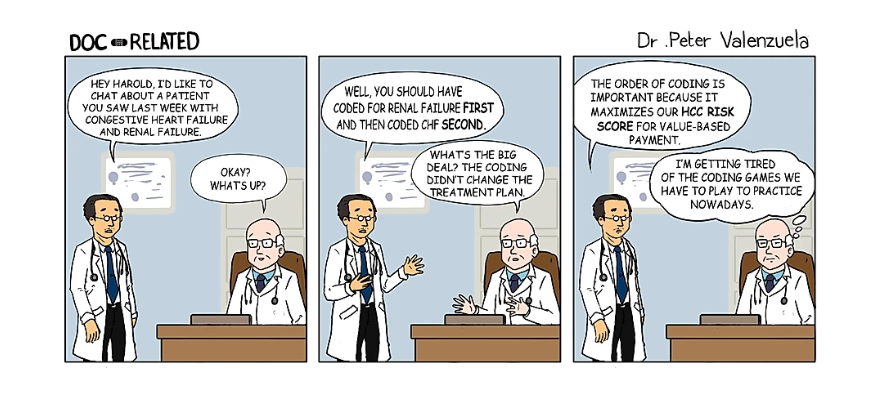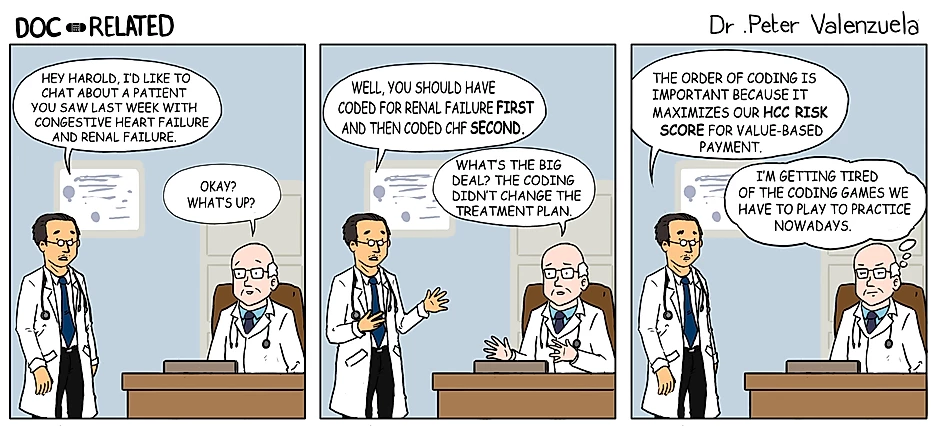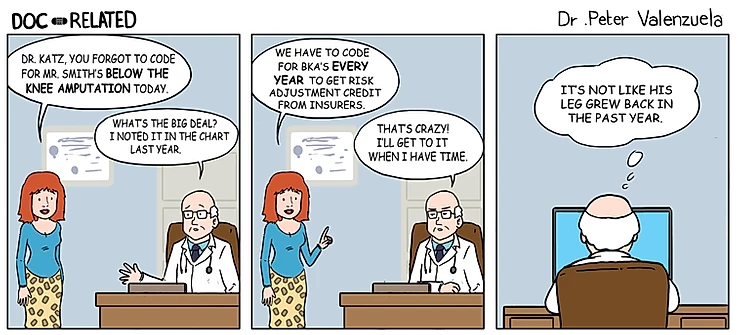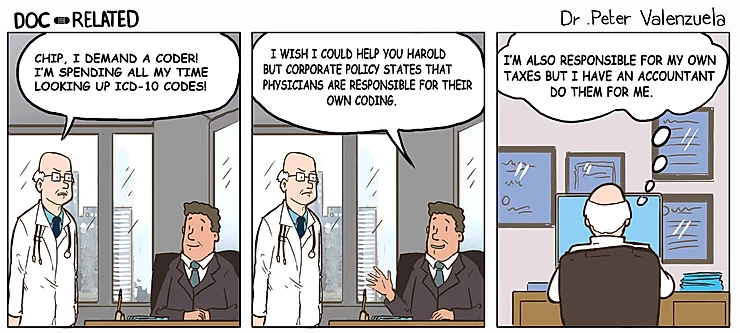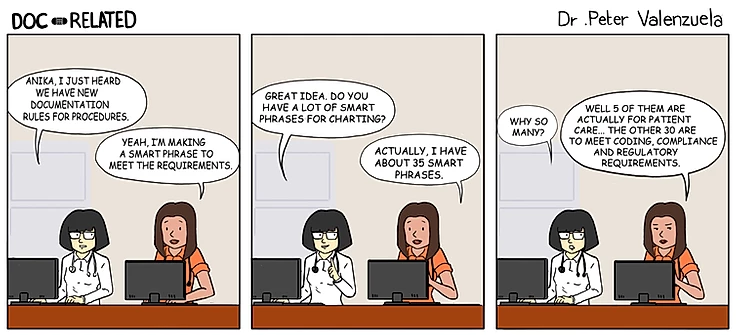If you haven’t seen any of the Doc-Related comic strips, you’re in for a good time. (And don’t we all need a little humor in this business?) They ring true because they’re created by a real doctor whose seen it all from the inside.
One of the things we love most about the ones you’ll find below is the way they highlight the real, day-to-day challenges of value-based care and HCC coding from a physician’s standpoint—and in ways that are short, memorable, and entertaining.
So read on and enjoy. We’ve added some statistics and thoughts about the sad-but-true realities behind each of these comics—and wrapped up by suggesting some practical solutions that you can implement in your own organization.
On HCC risk scores
According to a JAMA investigation, 54% of surveyed physicians reported that the time spent on billing and insurance issues is a significant issue. While physicians need to understand the critical role they play in HCC Coding through their documentation of patients’ conditions each calendar year, the complexity of coding should not be left on their shoulders alone.
On RAF coding requirements
Data cited in an AAPC article show that medical groups fail to report more than 40% of their patient’s active chronic conditions. And a major reason for that is placing the burden of coding exclusively or excessively on clinicians.
On doctors as coders
Think about the complexity of coding—there are 72,184 ICD-10 codes, 9,757 of which map to 86 HCC conditions with 19 varying categories. Diabetes alone has 429 associated Dx codes. No wonder 55.9% of physicians say documenting to the highest disease categories is a top HCC challenge.* (And the ones who don’t say that may not even realize how much they're missing!)
The bottom line is that coding is a full-time job. And doctors are already too busy with a different full-time job—practicing medicine—to do it right all the time.
On “note bloat”
62.2% of physicians say implementing HCCs into current processes is a top challenge.* No wonder 44% of physicians feel burnt out.
Final thoughts—and two practical solutions
While doctors absolutely do need an understanding of how HCC coding works—and the role clinical documentation and code specificity play—they will always be medical professionals, not coding specialists. Their primary focus will always be on their patients and treatment plans rather than the arcane details of HCC coding. (And would you really want it any other way—especially if you’re the patient and it’s your doctor?)
Here are two ways you can shift the burden of HCC coding off your doctor's shoulders—and get more accurate HCC codes and RAF scores:
- HCC Coding Automation Software automatically reviews 100% of diagnosis codes coming out of your EMR to ensure that the correct HCC codes are captured. It’s simply the fastest, most cost-effective way to ease the administrative burden on your physicians—and improve your organization’s financial performance under value-based contracts.
- Certified Risk Adjustment Coders (CRC) not only alleviate the coding load from your physicians—they’re an investment in consistent and accurate HCC coding performance and risk adjustment success that can yield significant financial benefits. For example, by hiring a single HCC coder, one healthcare organization in Florida increased RAF value by over $416K—in just one month (read our Best Practices Guide to HCC Coding to learn more).
We’d love to hear about the specific ways these issues are affect your organization—please feel free to reach out to us today.
*Ongoing HIMSS Analytics Research Study “Hierarchical Condition Categories (HCCs)” (February 2017)
